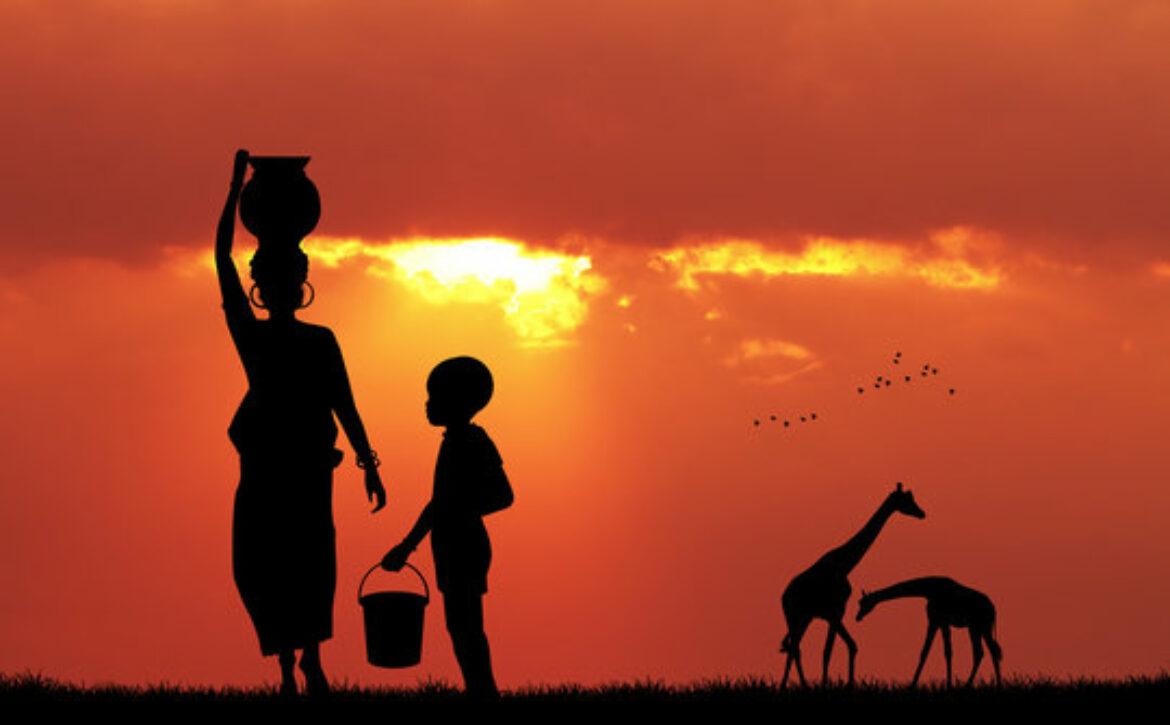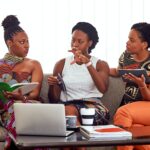Supporting Indigenous Communities in Africa Beyond COVID-19

Society Talks is a public dialogue hosted by the Southern Africa Trust through a live stream on YouTube. The dialogue brings together stakeholders within the development community, business and the general public to inform, engage and share experiences with the broader society.
In the eleventh instalment, the discussion looked at the disproportionate affect that the pandemic has had on indigenous communities, which has magnified structural inequalities and discrimination – and how critical long-term solutions are needed post-COVID. The panel included Lesle Jansen, Programme Director at Natural Justice, Kanyinke Sena, Director at the Indigenous Peoples of Africa Coordinating Committee (IPACC), and Job Morris, Co-founder and Director of the San Youth Network, hosted by Masego Madzwamuse, CEO of the Southern Africa Trust.
Lesle opened the dialogue by sharing background on indigenous people in Africa. She mentioned a study that looked at indigenous populations in 19 African countries – and how some communities within the region, particularly those with hunter-gatherer forms of land economies, are not accessing their human rights on a par with other African societies.
Job spoke about the San Youth Network, a recently opened organization working towards the needs of San Youth, including health, culture, and movement. Most recently, the work has been focused on delivering aid and information with regards to COVID-19.
Kanyinke discussed the work of IPACC, which is to promote the rights of indigenous people in Africa. With 135 organizations forming the network, the focus has been on environmental climate change, the anticipation of war, and women’s rights. He also highlighted some of the impacts that the pandemic has had on indigenous communities, like the effect of border closures on nomadic groups who have livestock that graze cross borders, and the lack of access to information about COVID-19, because of the channels used.
Kanyinke also delved into the increased burden on women, due to COVID-19, and a new development of how the school closures have resulted in a sharp rise in teenage pregnancies.
Lesle spoke of the challenges that indigenous people face, due to the lack of human rights. Communities are not able to engage with policy makers, the geographical location of communities is too remote – special measure are needed to ensure that these communities are not left behind. The approaches to community engagement: consultation, participation, people being able to give consent – are difficult to implement if people are not recognised as a group.
Job expanded on some of the challenges, bringing up gender violence, as a result of increased stress experienced during the restrictions. He also raised the lack of food, and the resulting hunger, which has caused poaching.
Looking to solutions, Kanyinke spoke of how IPACC is working towards curating information for indigenous communities, that is distributed, understood, and accepted. He also spoke about basic measures, like providing water tanks to promote hand washing, free masks, and health services for the infected. Without these, the effects of the virus when it does arrive in indigenous communities, will be devastating.
Job spoke of the difficulty with communication, with languages that are not recognized, or even understood by the organizations trying to help.
Lesle said that civil society groups should put all their weight behind advocating for the human rights and struggles of these groups, who are the custodians of heritage and biodiversity. In closing, the panelists collectively advised on the need for the preservation of language, culture and heritage, of these communities.
Click here to watch the full webinar
=========================
Society Talks is a weekly public dialogue hosted by the Southern Africa Trust through a live stream on YouTube. The dialogue brings together stakeholders within the development and business community, civil society and the public to inform, engage and share experiences with the broader society.
Connect and participate every Wednesday at 16h00 Central Africa time (GMT +2).









